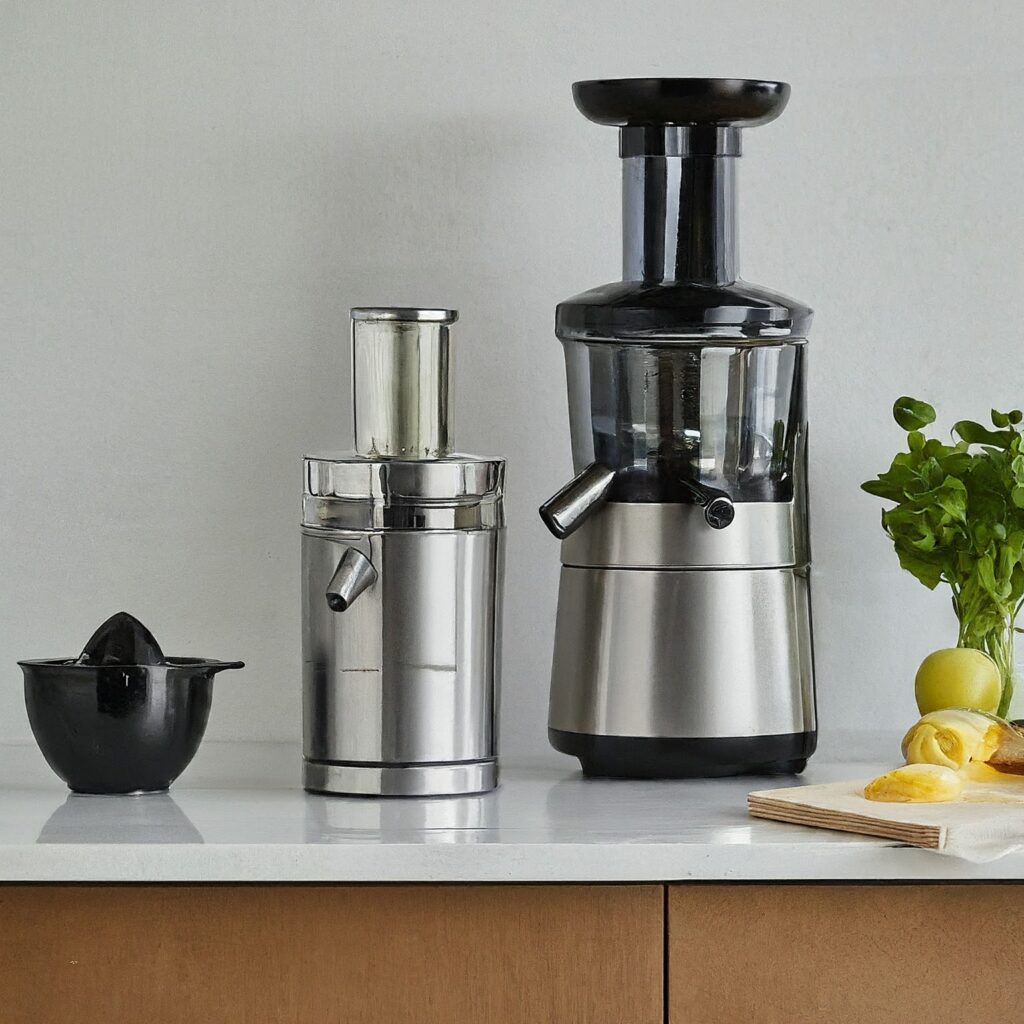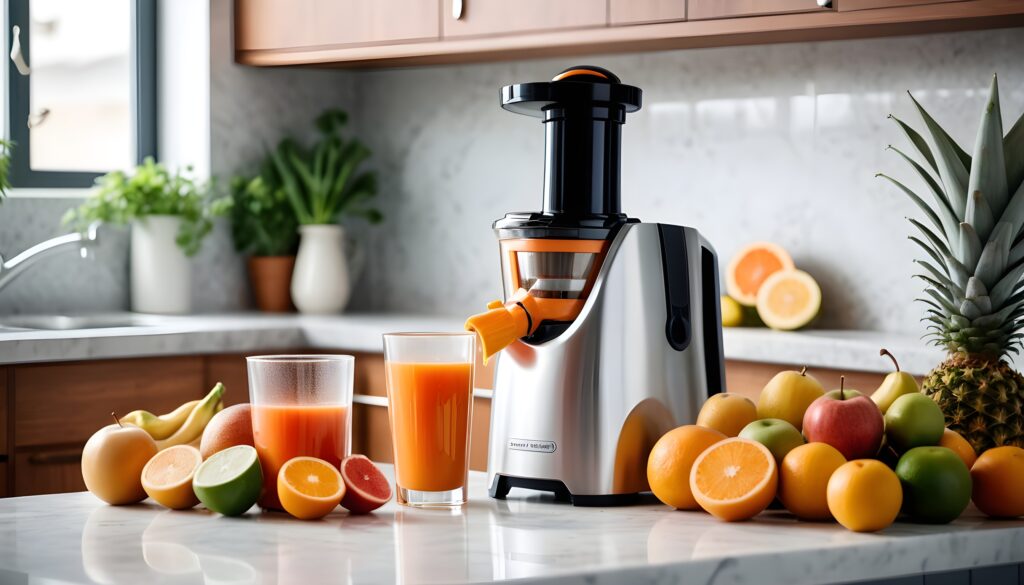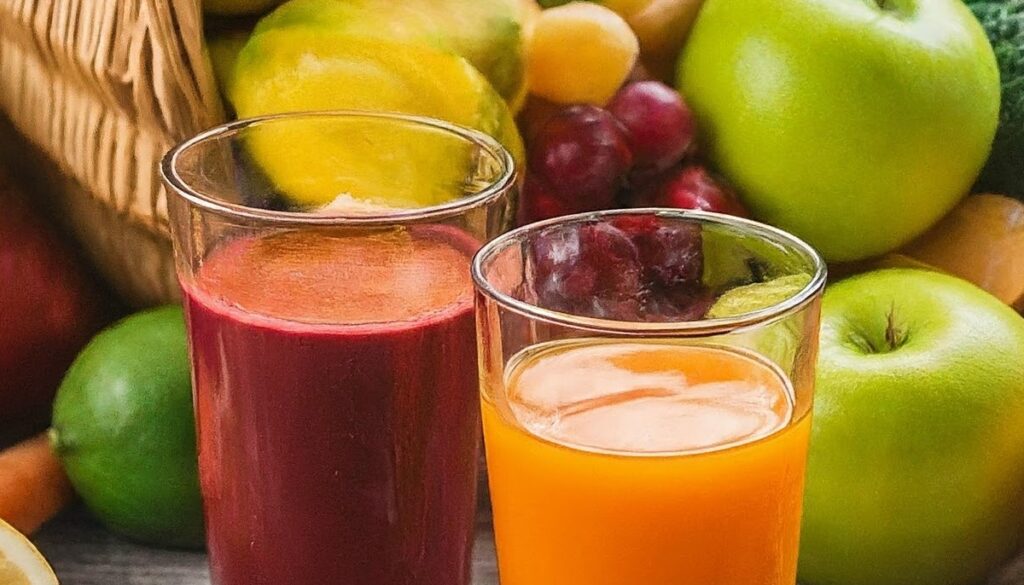In the world of healthy living, juicing has become a popular way to pack in essential vitamins and nutrients. But with all the juicer options out there, you might be wondering: what’s the difference between a cold press juicer and a regular juicer? Fear not, fellow juicing enthusiast! This in-depth guide will break down everything you need to know to pick the perfect juicer for your needs.
Regular Juicer (Centrifugal Juicer)
The “regular” juicer, also known as a centrifugal juicer, is the workhorse of the juicing world. It’s likely the type you’ve seen in stores and kitchens for years. Here’s how it works:
- High-Speed Spin: A sharp blade spins at high speed, shredding and pulverizing your fruits and vegetables.
- Centrifugal Force: This rapid spinning creates centrifugal force, which pushes the juice outward while the pulp remains in the center.
- Fast and Easy: Regular juicers are known for their speed and convenience. You can whip up a glass of juice in seconds, perfect for busy mornings.
Benefits of a Regular Juicer:
- Affordable: Regular juicers are generally less expensive than cold press juicers.
- Fast and Easy to Use: Their simple design makes them user-friendly for juicing beginners.
- Great for Harder Fruits and Vegetables: The powerful blades can handle tougher ingredients like carrots and apples.
Drawbacks of a Regular Juicer:
- Heat Generation: The high-speed spinning can cause heat buildup, which may damage some nutrients in your juice.
- Shorter Shelf Life: Heat and oxidation can lead to a shorter shelf life for your juice compared to cold-pressed juice.
- More Pulp: Regular juicers tend to produce juice with more pulp, which some people find undesirable.
Cold Press Juicer (Masticating Juicer)
Cold press juicers, also called masticating juicers, take a slower, more gentle approach to juicing. Here’s the breakdown:
- Chewing Action: A single auger screw slowly crushes and squeezes the juice from your produce, mimicking the act of chewing.
- Minimized Heat: The slow processing minimizes heat generation, potentially preserving more nutrients.
- Higher Yield: Cold press juicers can extract more juice from some fruits and vegetables compared to regular juicers.
Benefits of a Cold Press Juicer:
- Potentially More Nutrients: Slower processing may help preserve vitamins, enzymes, and antioxidants in your juice.
- Longer Shelf Life: Cold-pressed juice tends to have a longer shelf life due to less oxidation.
- Less Pulp: Cold press juicers generally produce juice with less pulp, resulting in a smoother texture.
Drawbacks of a Cold Press Juicer:
- Price: Cold press juicers are typically more expensive than regular juicers.
- Slower Processing: Juicing takes longer with a cold press juicer compared to a regular juicer.
- Not Ideal for All Produce: Leafy greens and soft fruits can be trickier to juice with a cold press juicer.
So, Which Juicer is Right for You?
The best juicer for you depends on your priorities:
- Convenience and Speed: If you’re short on time and prioritize speed, a regular juicer might be the better choice.
- Nutrient Content: If maximizing nutrient content is your main concern, a cold press juicer could be worth the investment.
- Budget: Regular juicers are generally more budget-friendly than cold press juicers.
- Pulp Preference: If you prefer juice with less pulp, a cold press juicer might be a better fit.
Ultimately, the best way to decide is to consider your juicing habits and preferences. No matter which juicer you choose, you’re on your way to a healthier and more delicious lifestyle!


